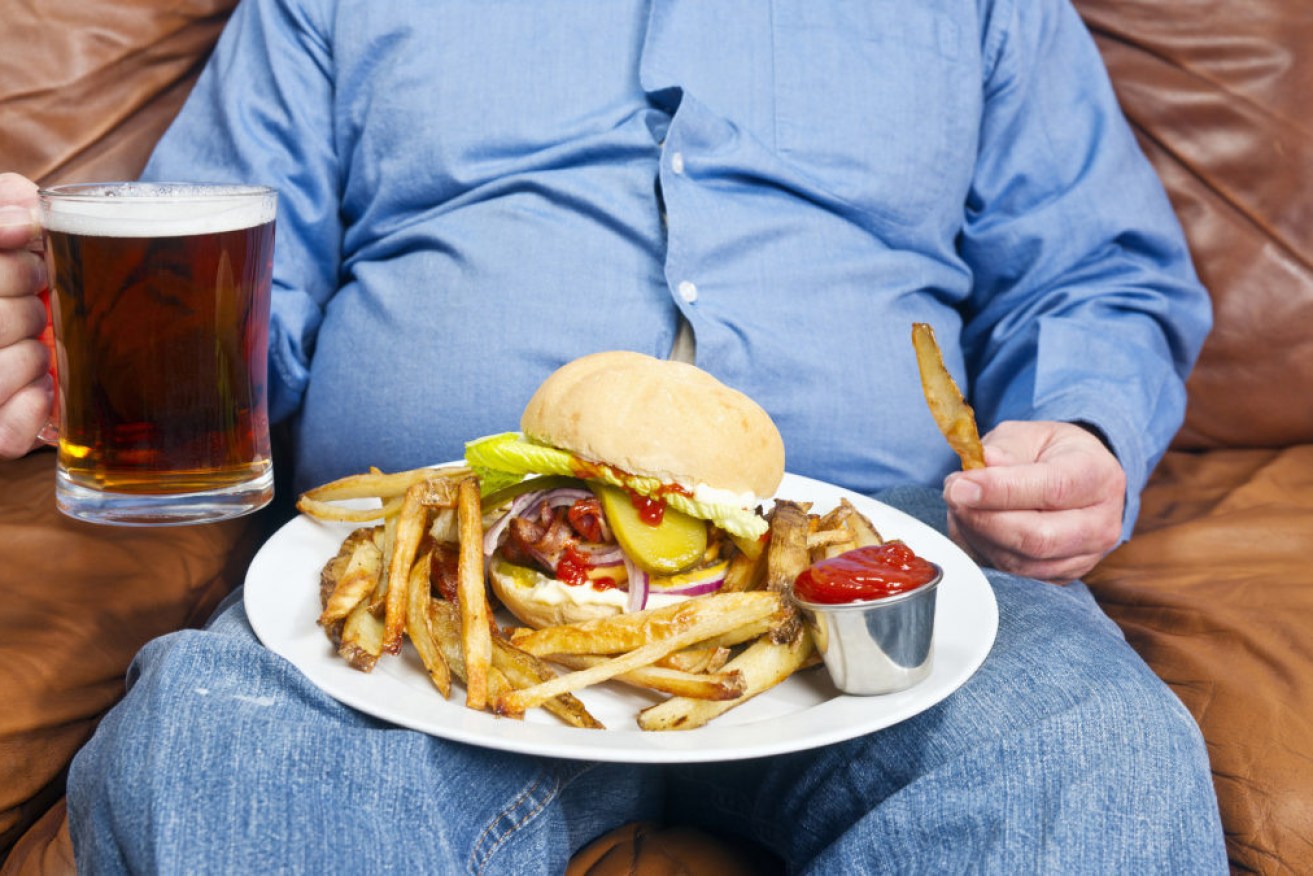How stress and tiredness can trigger unhealthy habits and sabotage weight-loss efforts


Temptations are harder to resist when brainpower is taxed by stress, worry or tiredness, a new study has shown. Photo: Getty
Stress and exhaustion make it even harder to resist the temptations of junk food and booze, a new Australian study has found.
When people are stressed, tired or otherwise straining their brain power they can find it more difficult to ignore cues in the environment that signal something rewarding – such as ads for unhealthy snacks and drinks – an experiment conducted by UNSW Sydney researchers and published in Psychological Science revealed.
Study lead Dr Poppy Watson said before the experiment it was not known whether our general inability to ignore reward cues was due to something outside of our control, or whether people were simply failing to use their brain to constantly work against distractions.
The experiment proved that ignoring such cues became harder as soon as participants had to perform a task while also holding other information in their memory.
“We have a set of control resources that are guiding us and helping us suppress these unwanted signals of reward,” Dr Poppy Watson said.
“But when those resources are taxed, these become more and more difficult to ignore.”
In the experiment, study participants that were given complex memory tasks found it difficult to stop themselves from looking at reward cues, even though they were being paid to try to ignore them.
“Under high memory load, participants looked at the coloured circle associated with the high reward around 50 per cent of the time, even though this was entirely counterproductive,” Dr Watson said.
‘Executive control’ key to resisting temptations
While the study demonstrated that it is within our power to ignore reward cues, the cognitive resources available to us – known as executive control – is limited.
Executive control is a term for all cognitive processes that allow us to pay attention, organise our life, focus and regulate our emotions.
“Now that we have evidence that executive control processes are playing an important role in suppressing attention towards unwanted signals of reward, we can begin to look at the possibility of strengthening executive control as a possible treatment avenue for situations like addiction,” Dr Watson said.
Cognitive control key to cutting booze, junk food
People need to have full access to their cognitive control functions to resist unwanted signals of reward in the environment, the study showed.
“This is especially relevant for circumstances where people are trying to ignore cues and improve their behaviour, e.g. consuming less alcohol or fast food,” Dr Watson said.
There is a strong link between “where your attention is and what you eventually do”, she said.
So if you find it hard to focus your attention away from reward cues, it’s even harder to act accordingly.’’
How to combat stress
The study also explains why stress can make it harder for people to focus on losing weight or tackling vices, such as alcohol and cigarettes.
“Constant worrying or stress is the equivalent to the high-memory load scenario of our experiment, impacting on people’s ability to use their executive control resources in a way that’s helping them manage unwanted cues in the environment,” Dr Watson said.
The psychological researcher advised people to try and be strategic about their exposure to reward cues.
“If you are under a lot of cognitive pressure (stress, or tiredness) you should really try and avoid situations where you’ll be tempted by signals,” she said.
“You need to be in the right frame of mind to be in a situation where you can stop yourself from getting distracted and going down a path where you don’t want to go.”








